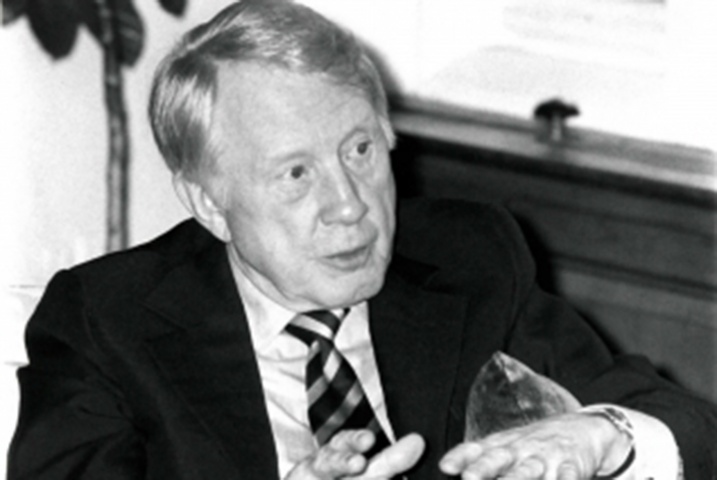Frank Stanton Chair in Nuclear Security Policy Studies established in MIT Political Science
Endowed chair established with a gift of $5 million from the Stanton Foundation

Frank Stanton
Photo: The Stanton Foundation
MIT Political Science and the Stanton Foundation are proud to announce the establishment of the Frank Stanton Chair in Nuclear Security Policy Studies. The endowed chair was established with a gift of $5 million from the Stanton Foundation which was created by Frank Stanton, former president of CBS, who is widely regarded as one of the greatest executives in the history of electronic communications. His involvement with nuclear issues began with his appointment to a committee convened by Dwight Eisenhower in 1954 to develop the first comprehensive plan for the survival of the US following a nuclear attack. Stanton had lead responsibility for developing a plan for national and international communication in the aftermath of a nuclear incident.
The Frank Stanton Chair will recognize a faculty member whose researchand teaching interests focus on issues of nuclear proliferation, deterrence, and arms control. "Since its inception, the MIT Security Studies Program has been committed to the study of the role of nuclear weapons in international politics," said Program Director, Barry Posen. "We are honored and grateful that the Stanton Foundation has chosen to endow the Frank Stanton Chair, which will provide important new resources to sustain and enhance this effort."
Department Head, Richard Locke describes the endowed chair as a testament to the strong collaboration between the Department and the Security Studies Program – "We believe that this new chair will not only strengthen our already excellent security studies group but also help the department fulfill its mission of promoting research and teaching aimed at addressing some of the world's great challenges."
A search to recruit an outstanding candidate for this new chair will begin shortly.
About Frank Stanton
Frank Stanton was hired by CBS in 1935 on the strength of his PhD dissertation in the nascent field of audience research – he became president of CBS at age 36. During his 25 years as president he transformed the radio network into a broadcasting powerhouse.
In 1960, Stanton initiated the first televised presidential debates – the famous Nixon-Kennedy "Great Debates" – which required a special Act of Congress before they could proceed. These debates are widely credited with giving Kennedy his margin of victory, and have become a staple of American presidential campaigns. In Stanton's most public fight for free speech, which became a landmark case, he defied a U.S. House of Representatives subpoena and preserved the confidentiality of out-takes from "CBS Reports: The Selling of the Pentagon."
During his years at CBS and thereafter, Stanton had an abiding interest in international security and American foreign policy. He was a lifetime member of the Council on Foreign Relations, chairman and trustee of the RAND Corporation, chairman of the American Red Cross, chairman of the Visiting Committee of the Harvard Kennedy School, and Chairman of the US Advisory Commission on Information.
About MIT Political Science
MIT Political Science is one of the world's leading political science departments, attracting top-quality graduate students and faculty, and serving as home to several important educational and research activities. The Department promotes research and education that blends together analytical and theoretical rigor with policy relevance, aimed at solving the world's great challenges while also advancing the frontiers of knowledge. To fulfill this mission, MIT Political Science brings together the best and brightest minds from around the world to study and collaborate.